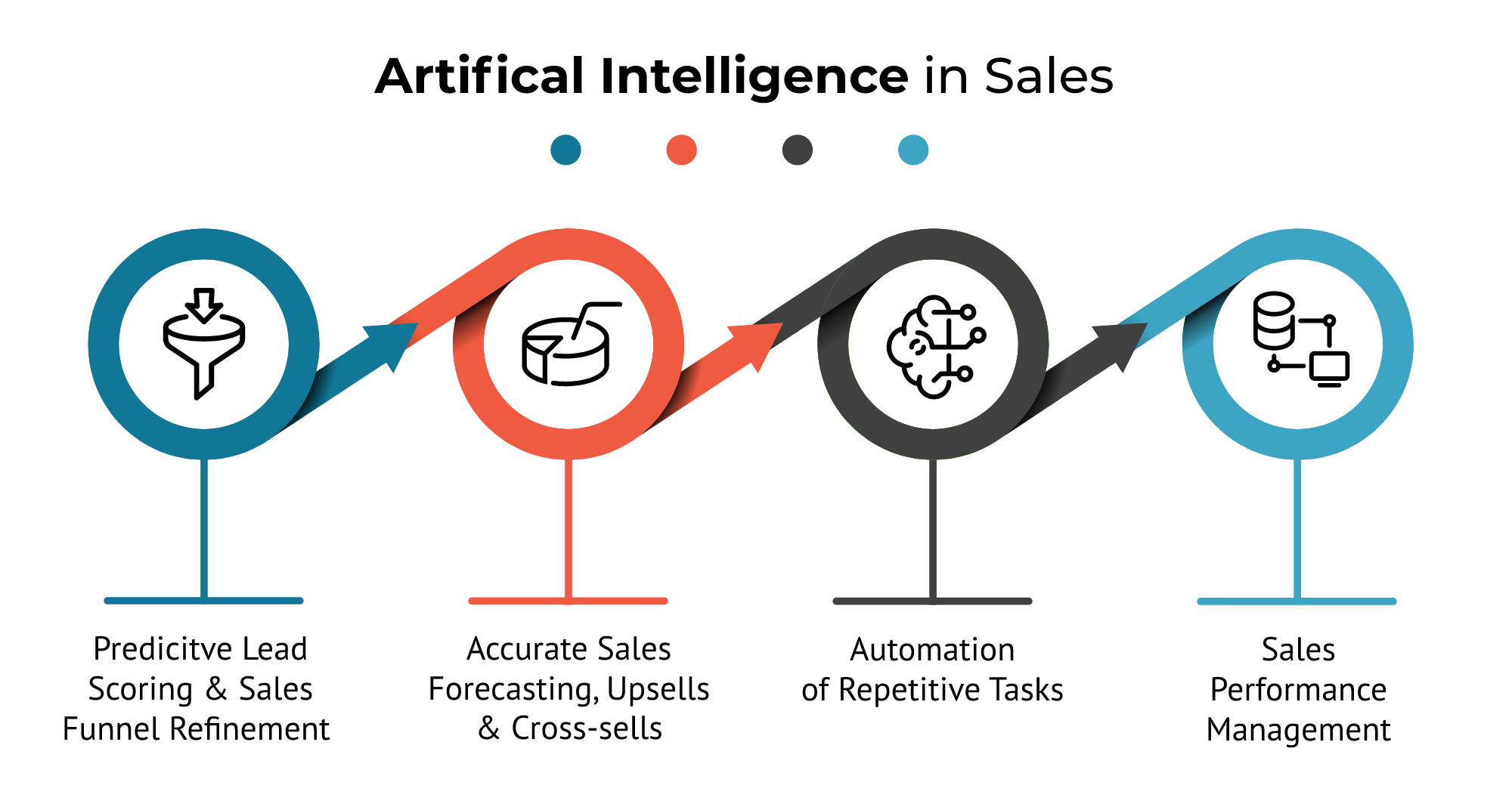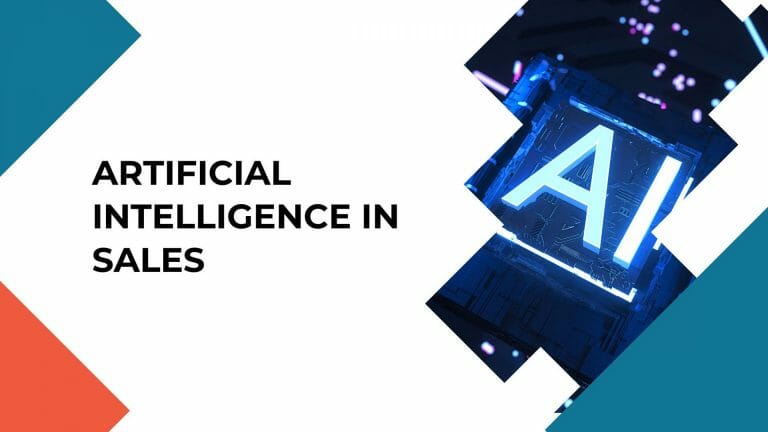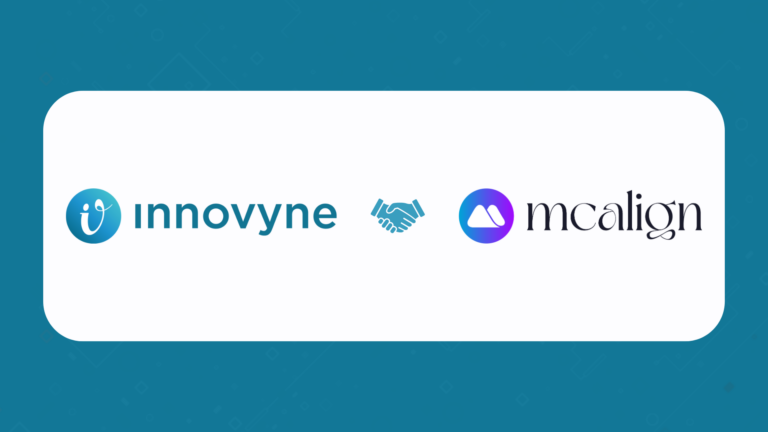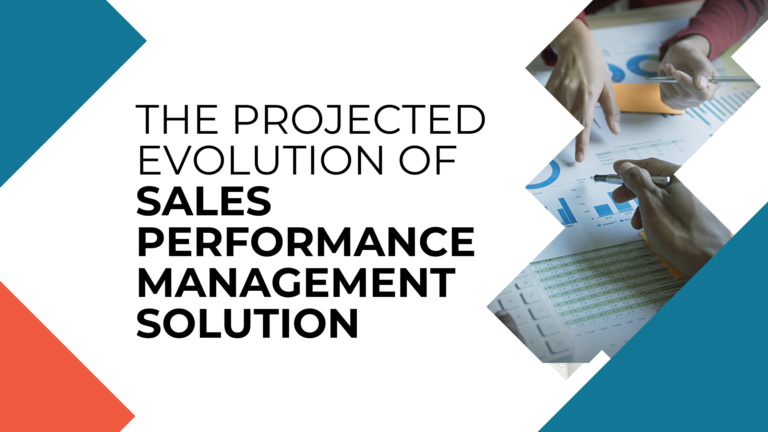As the sales industry continues to evolve, artificial intelligence (AI) is becoming increasingly popular as a tool to help sales teams reach their goals. AI in sales has the potential to revolutionize the way sales teams operate, offering solutions to a variety of challenges in the industry.
“Forrester made waves with a report that said that 20% of B2B sales jobs – 1 million in total – would disappear by 2020,” says Chris Bucholtz at CSMWire. “Sales reps will need to evolve into subject matter experts – on both their own products and on the methods that those products can be delivered going forward. The sales arena is evolving rapidly due, in large part, to the paradigm shift brought on by the machine-learning or AI revolution.
In this blog, we’ll explore the potential of AI in sales to automate mundane tasks and its ability to provide insights into the future. We’ll look at the benefits AI can bring to sales reps and the potential pitfalls to watch out for. Get ready to take your sales team to the next level with AI!
4 ways how AI is changing sales
1. Predictive Lead Scoring & Sales Funnel Refinement
A data-driven culture is replacing the traditional intuition-driven sales culture.
Most sales reps have a hunch, a mix of experience and guesswork, that helps them identify prospects that are most likely to buy their product. That hunch is now challenged by the emergence of AI solutions such as Salesforce Einstein that work on identifying leads with the highest propensity to successfully close based on big data that includes factors such as empirical sales data, social media data, and existing customer profiles.
However, as any sales professional knows, lead prioritization is only half of the battle. After appropriately prioritizing leads, sales reps need to map out the most effective path to close. Enter AI algorithms that provide real-time recommendations and actionable advice that allow sales reps to effectively leverage big data to determine the right actions to move the deal forward.
The third, and arguably the most important, step is continuous monitoring and analysis of sales effectiveness to validate the sales approach and to refine it for optimality.
2. AI for sales forecasting, Up-sells, and Cross-sells

Predictive analytics tends to be a textbook example of how AI can augment human efforts and support increasingly accurate decision-making with a comprehensive understanding of future impact. Gone are the days of sales managers struggling to provide an accurate sales forecast. The daunting task now falls in the realm of machine learning where managers are now able to predict sales revenue with a high degree of accuracy which in turn helps organizations make better operational decisions.
In addition to robust forecasting, artificial intelligence is also changing the world of sales through the expansion of share-of-wallet in the existing customer base. Answers to questions such as “which customer is likely to buy more” are much easier to answer through AI algorithms which help determine the customers with the highest likelihood of purchasing additional products and services. The net effect is a decrease in marketing costs and a increase in overall organizational revenue.
3. Automation of Repetitive Tasks in the sales process
Ironically, the advent of AI-based solutions is good news for less tech-savvy sales managers. According to research, less than 36% of a sales rep’s time is spent selling. The remaining 64%, nearly two-thirds, of sales reps’ time is spent on non-revenue-generating activities. The new AI solutions attempt to automate mundane tasks such as administration and data capture to allow sales reps more value-added time with prospects.
4. AI in Sales Performance Management (SPM)
A critical aspect of a successful sales team is the organization’s ability to motivate, monitor, and support the individual sales reps to effectively sell the company’s solutions. This practice is better known as sales performance management.
Various solutions based on machine-learning algorithms tackle different aspects of SPM. Using compensation analytics to identify and address employee challenges in a timely fashion to increase employee retention, designing optimal compensation plans and incentives for targeted employee groups to support quota attainment and promote employee motivation through relevant incentives, and monitoring employee sentiment to better retain and engage employees are all examples of leveraging AI-based solutions for sales performance management. Moreover, sales performance management’s ascent into providing real-time answers utilizing chat-bots helps companies achieve higher levels of employee satisfaction, which in turn, results in high levels of talent retention.
With new AI-focused innovations continuously on the rise, sales leaders are constantly challenged with new ways of thinking. InnoVyne partners with sales organizations to address technology-related decisions to achieve process automation, and improve transparency in their sales operations and incentive compensation processes.
Take a look at our Solutions to learn how InnoVyne can help your organization or contact us to know more.
Will sales jobs be automated? How does it affect sales teams?
The advent of AI in sales has revolutionized many aspects of the modern world, including the way we work. This has led to some speculation about whether certain sales jobs may soon be automated with the help of AI. For sales teams, this is a pertinent question that deserves a closer look.
AI in sales has been used in various ways to improve sales processes, such as providing customer insights, helping to identify potential opportunities, and making sales predictions. While these are important developments, will Artificial Intelligence ever be able to actually replace sales reps?
At this point in time, it is unlikely that sales jobs will be automated with the help of AI.
AI technology is still in its infancy and is not yet advanced enough to be used to replicate the skills of a sales manager or a sales rep. It cannot replace the human touch and the ability to form meaningful relationships with customers, which are key elements of the sales process. In addition, AI cannot think creatively or come up with innovative solutions to complex sales problems. That being said, Artificial Intelligence can make sales teams more efficient and effective by automating certain tasks.
AI in sales can be used to help salespeople with research, lead generation, and customer segmentation, among other tasks. It can also be used to identify trends and make predictions to help salespeople make informed decisions. In conclusion, Artificial Intelligence is already making an impact on the sales industry, but it is not likely to completely automate sales jobs in the near future. AI can, however, be used to support sales teams and make them more efficient and effective.
How does AI help in sales forecasting?
A sales team can gain insights into customer behavior and preferences with AI-driven sales forecasting. It enables businesses to forecast customer demand and sales by using data on customer purchasing behavior and trends. It aids in the identification of market opportunities and assists sales teams in optimizing their sales process.
AI in sales can also help sales teams identify potential areas for improvement. Furthermore, it can determine which customers are more likely to buy products when they are most likely to buy, and which products are the most popular. This data can assist sales teams in developing targeted campaigns that are tailored to the needs of the customer.
Artificial Intelligence-powered forecasting can also assist in identifying new markets that sales leaders may not have previously investigated. AI-driven forecasting can assist sales teams in identifying potential new target markets and developing strategies to reach them by analyzing customer data. AI-powered forecasting can also assist sales teams in identifying trends that may affect their sales performance.
How to use machine learning to increase sales?
Machine learning is a subset of artificial intelligence (AI) that allows computer systems to learn from data and make decisions without being explicitly programmed. By applying machine learning algorithms to sales data, you can accurately predict customer behavior and optimize sales campaigns.
The first step in using machine learning to increase sales is to collect and analyze customer data. This data can include demographics, buying patterns, preferences, and more. With this data, you can build predictive models that can accurately predict whether a customer will purchase a product or service.
Next, you can use these predictive models to create automated insights. Automated insights can help you identify opportunities to increase sales and identify issues that may be hindering sales. For example, you can use automated insights to identify customers that are at risk of churning and take steps to keep them engaged.
Finally, you can use machine learning to optimize your sales campaigns. By analyzing customer data, you can identify which channels and tactics are the most successful for driving sales. You can also use machine learning to personalize sales campaigns and optimize your messaging for different customers.



